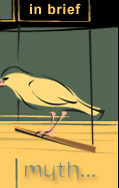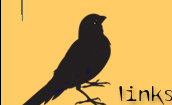Always seek professional advice and treatment from a qualified vet. This information is provided as a guideline only.
HICCUPS?
Nope – your bird is gasping for air. It is critical that you take it to a vet (preferably an avian vet) immediately.
Oooh… WAS THAT A KISS?
Nope – it’s a sneeze. If you keep hearing it and your bird is shaking its head, or wiping its beak excessively, or dipping its tail, it’s sick. If its beak is making clicking sounds, and its feathers are fluffed up, it’s very sick. It probably has air sac mite and with prompt treatment can recover (however without treatment the bird will die). Your vet can provide you with some Ivermectin (an external treatment only - be EXTREMELY careful using this as it is very toxic - and never use it on chicks), or SCATT (Moxidectin). There is also a new product called S76. To read a product comparison click here. For detailed treatment using S76 click here.
PREVENTING DISEASES
If you are adding a new bird to an existing aviary/cage, it would be wise to quarantine it for two weeks, keeping a close eye on it to ensure it’s healthy. Treat it with no more than one drop of Ivermectin or SCATT on the back of the neck as soon as you get it home (if it hasn’t received treatment recently) to eliminate parasites like mites and lice. Repeat once only, 2 weeks later. Be extremely careful as it is very toxic and linked to cancers in dogs and cats ingesting it in heartworm and other anti-parasite products.
Remember to keep your birds out of draughts, as they can easily catch a chill. Treat them regularly for parasites.
Calcium supplementation is important as deficiency in caged birds is very common - and avoidable. Click here for details.
For common canary diseases click here.
NAIL TRIMMING
Check the canary’s nails and trim them if necessary. Long nails are very uncomfortable for a bird and it may stop singing. They can also cause injuries. For instructions on trimming click here. There is no need to trim a canary's beak. Wing trimming is cruel and unnecessary - don't do it.
HYGIENE
Clean cage daily and thoroughly clean it once a month. Don’t use disinfectants unless birds have been ill. For information on the effects of disinfectants and cleaners click here. Remove perches to scrub and soak them in hot water. Allow to dry before replacing. Clean all food and water dishes daily. If you use bird sand or washed river sand in the tray, replace it weekly. Otherwise clean tray daily. Wash your hands thoroughly after cleaning cages or handling birds.
BIRDBATHS
Provide a birdbath with fresh water every day as birds are happiest when they can bathe daily. An unhappy bird will not sing.
TOXIC FUMES IN THE HOME
Beware of ‘non-stick' cookware and irons. The fumes from heating teflon are toxic to canaries. Don’t use insecticides, air fresheners or strong cleaning products around canaries.
SCALY LEGS/FEET
A bird’s legs and feet should be pink and smooth. If they are red and crusty, they probably have scale mites. This can be treated with an application of olive oil twice per week – apply carefully and only use a tiny amount or the feathers will become oily. There are also commercial products available.
If a bird is sick, you can place it in a ‘hospital cage’ where it can stay warm and quiet until you can get it to an avian vet, if necessary. It is essential that you monitor temperature regularly @ 29-32°C. To make your own hospital cage click here.





